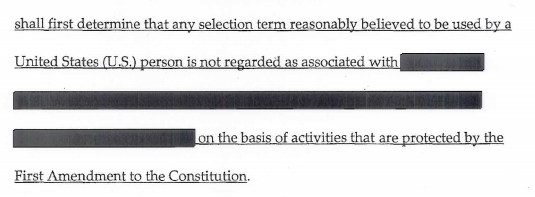Following up on my previous post about how the pursuit of marriage equality has justified many departures from what we would normally call the Rule of Law (which are either ignored or justified), we have a related story from Pennsylvania.
The Register of Wills of Montgomery County has decided, on his own accord, that Pennsylvania’s ban on same-sex marriage violates the state constitution.
“I am going by my lights here. I am going by what I think is right,” stated Montgomery County Register of Wills D. Bruce Hanes. He began issuing the licenses Wednesday morning, a day after signaling his willingness to do so.
Hanes said he doesn’t believe the state statute limiting marriage licenses to heterosexual couples complies with the Pennsylvania Constitution.
Hanes, a lawyer, offered further reasoning for his actions:
Hanes, a lawyer who was elected register of wills in 2007, would not comment on the lawsuit Tuesday. But last week he laid out the legal basis for his decision to buck the Marriage Law. When a lesbian couple notified him of their intent to request a marriage license, Hanes said, he consulted with his solicitors and came to rest on the “inherent rights” and “equality” guaranteed in Article 1 of the Constitution. “Those are provisions of the Pennsylvania Constitution which I think are diametrically opposed to the Marriage Law,” Hanes said Wednesday. “Now, what am I to do? I took an oath.” Hanes said he also took into consideration the U.S. Supreme Court decision striking down the federal Defense of Marriage Act and Pennsylvania Attorney General Kathleen Kane’s announcement that she would not defend the state’s Marriage Law against an American Civil Liberties Union lawsuit.
So he took it upon himself to start issuing marriage licenses, in clear violation of the law of the Commonwealth. This is almost like an act of reverse civil disobedience (instead of not doing what the law requires, he is doing what the law forbids). If he doesn’t like enforcing the law, he can resign.
Now the Governor (who is also defending the SSM ban because the AG decided it was unconstitutional) has filed suit against Hanes, seeking an injunction.
In its request for an injunction, the Health Department said Kane’s “personal opinion” and the Supreme Court’s ruling have no bearing on what is happening in Montgomery County. “No public pronouncement of an executive official – even the attorney general of Pennsylvania – declaring his or her individual legal opinion that a law is unconstitutional relieves a public official such as the clerk from his mandatory duty to comply with the law,” state attorneys wrote. Hanes’ actions in turn have given the Corbett administration more ammunition against Kane, who they say is “simply wrong” and setting “a very troubling precedent.”
The Governor added that it was also improper for the AG to decline to defend the law.
But Schultz argued that Kane’s decision effectively usurped the authority of the courts to decide on the constitutionality of the state’s statutes. Schultz noted that no court has ruled on the constitutionality of Pennsylvania’s Marriage Law. As a result, he said, Kane’s declaration sets the stage for any attorney general to refuse to defend laws with which they personally disagree.
In an e-mailed response to Schultz later Tuesday, First Deputy Attorney General Adrian R. King Jr. disputed those contentions, saying Kane had made “not a personal determination but, rather, a legal determination” that the Marriage Law was unconstitutional. “Just as discriminatory laws based on race, religion, gender, disability, and ethnic origin have been struck down by the courts one by one, so, too will the Marriage Law,” King wrote. “In short, this is a watershed moment. It is certainly not the beginning of the ‘chaos and uncertainty’ you predict.”
But whose decision is it to make if a law is unconstitutional. King is likely correct that the courts will strike down Pennslyvania’s law in due time. So is it enough for state officials, at varying degrees of relevance (with all respect to the Register of Wills) to make this determination for themselves?


